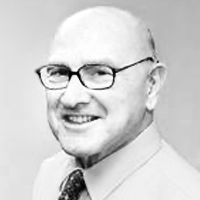Question
What CAP tests are available to test an 8 year old with an asymmetric bilateral hearing loss? Are these available CAP tests normed on the hearing impaired?
Answer
I don't know any central test that has been specifically 'normed' on hearing impaired children. Many years ago I did a study with subjects who had normal hearing in one ear and no measurable hearing in the other. They were given the SSW test at a presentation level of 50 dB SL in the normal ear and 100 dB or 105 dB in the deaf ear. Surprisingly the normal ear was essentially without error, and in most cases there were essentially no correct responses from the dead ear. With cross hearing the non-competing words should have been easily audible and the competing words from the deaf side should have interfered to some extent with the competing words in the good ear. But instead there was little sign of any cross hearing. Although an unusual example, this helps allay fears that asymmetrical losses are highly problematic in central testing. I have not looked at this issue systematically using other tests.
However, if monaural information is sought on tests such as Phonemic Synthesis, filtered speech, etc., contralateral masking would be required if there was a threat of cross hearing. If so, speech in noise testing would require masking from a second audiometer because both channels of the audiometer are needed for the speech and noise to the test ear.
Frank Musiek has used Dichotic Digits with mild-moderately hearing impaired adults (high frequency losses) for site-of-lesion testing and found the test could tolerate the peripheral distortion. I have not seen Dichotic Digits applied to the CAPD population with hearing loss, although perhaps it has.
The SSW has been used in several studies with hearing-impaired adults. When the disorder was cochlear the correction factor generally kept the corrected (C-SSW) score within the normal range. In patients with conductive losses who evidence air-bone gaps of 20 dB or more, the presentation level should be 30 dB SL instead of 50 dB SL in the conductive ear(s).
We have tested children with hearing losses for CAPD using the SSW test over the years. However, one must use the Traditional Analysis that corrects for word recognition score, not the new Number Of Errors (NOE) analysis. The Traditional Analysis corrects for peripheral distortion and also gives some latitude for those who have hearing loss. Although we cannot point with precision to exactly what extent the errors can be attributed to peripheral loss and to what extent central, we generally have a good idea.
I just finished a progress report on a young lady who is moderately mentally challenged (40 IQ) and has a severe, predominately conductive loss bilaterally. She had 96% word recognition in the better ear and 80% in the poorer ear. Her C-SSW scores showed essentially normal responses except for the right competing condition which was almost always in error. It shows that she could take the test getting 3 of the 4 words correct in most items, but a severe deficit was found in one condition. The most prominent signs were, not surprisingly, poor decoding, as suggested by the enormous peak in the Right Competing condition. In addition she showed some signs of Tolerance-Fading Memory (TFM). These categories correspond with the academic and communicative complaints she has. For this reason we feel reassured that we are correctly identifying CAPD as at least part of her problem. She has responded very well to auditory training therapy geared to decoding problems. She has demonstrated vast improvement in decoding and has finally started to learn to read. We have not yet addressed the TFM aspect.
I hope the above is helpful.
Jack Katz Ph.D.
Bio: Dr. Katz has been involved with CAPD for over 40 years. Dr. Katz developed the Staggered Spondaic Word test, other diagnostic tests of CAPD, and also therapy programs for people diagnosed with CAPD. He is the editor of The Handbook of Clinical Audiology, now in it's Seventh Edition.

